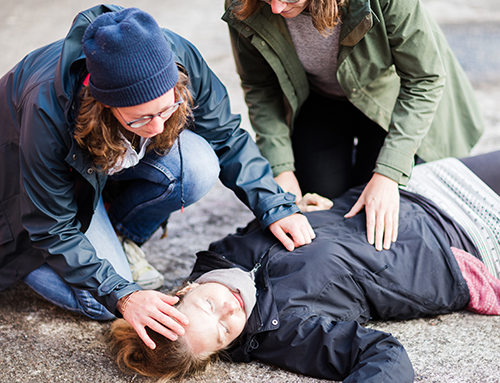5 things you can do to support someone recovering from addiction.
There are more than 23 million¹ Americans in recovery from addiction to alcohol and other drugs and another 100 million family members and friends sharing their pain. National Recovery Month isn’t just for them. It’s for everyone.
The driving reason for the annual observance is to raise everyone’s awareness of recovery from substance use disorders as well as to promote and support new treatment and recovery practices, support people in recovery by drawing attention to the recovery community and honor the dedication of service providers and community members across the nation who help people undergoing recovery.²
According to the Substance Abuse and Mental Health Services Administration (SAMHSA) it is important to know the key messages of National Recovery Month:
- Behavioral health is essential to health
- Prevention works
- Treatment is effective
- People recover
The physical discomfort of withdrawal may make recovery difficult, but it is possible.³ Bringing attention to National Recovery Month, observed every year since 1989, demonstrates a common commitment to improving access to recovery. It takes support from many others to face the challenges that come with recovery.4 It’s that sentiment that is reflected in the 2022 theme: Join the Voices for Recovery. Together We are Stronger.
Recovery Month Offers Opportunity
Be a recovery advocate. Take time this September to celebrate those finding healing in recovery, learn more about substance use disorders, help educate others and support those you know in recovery.5 Here are five ideas for doing just that:
1. Check in on them and actively listen. It is more important than ever to check in on your loved ones and see how they are feeling and doing. We all need and want to be heard and listened to. Be sure to be interested and engaged when your loved one is sharing something with you. Demonstrate concern and repeat back what your loved one shared with you, which ensures you are understanding them and shows you are listening to them. Even if you may not agree with them, affirm their feelings.
2. Reduce friction and unnecessary arguments. Family stressors can contribute to a relapse, and/or exacerbate underlying mental health issues such as depression or anxiety. Do your part to develop healthy communication and open a dialogue in order to help facilitate constructive support. Try to spend meaningful and positive time together and try to stay away from unnecessary or unwanted topics of discussion.
3. Encourage healthy habits. Whether it be open communication, proper sleep hygiene, exercise, eating healthy, or abstaining from alcohol, drugs and nicotine, show your support by also living a healthy lifestyle. This has many benefits beyond supporting your loved one, as this will help improve your own mental, physical and spiritual health, and can also be a source of bonding and healing between you and your loved one in recovery.
4. Set healthy boundaries. Oftentimes poor boundaries are formed during active addiction and may continue into recovery. It is important that all that surround the person in recovery be vigilant to any signs of any enabling, co-dependency, or other such unhealthy behaviors.
5. Reduce environmental triggers. Avoid keeping alcohol or drugs in the home and abstain from using alcohol and drugs yourself. If you have prescription medications keep them locked up and out of sight of your loved one in recovery. Help them avoid social situations where there is a risk of a relapse or support them by going together to social events as a way to help keep them on track.
Get even more ideas and tips at the Family Addiction Specialist.
HK-1834
References
- Faces & Voices of Recovery website. Available at https://facesandvoicesofrecovery.org/. Accessed July 14, 2022.
- SAMHSA website. Available at https://www.samhsa.gov/recovery-month. Accessed July 14, 2002.
- Recovery Month website. Available at https://rm.facesandvoicesofrecovery.org. Accessed July 14, 2022
- National Today website. Available at https://nationaltoday.com/national-recovery-month. Accessed July 14, 2022.
- Family Addiction Specialist website. Available at https://www.familyaddictionspecialist.com/blog/10-tips-for-how-to-support-someone-in-recovery-from-addiction. Accessed July 14, 2022.






